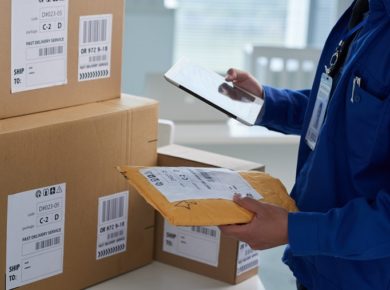The logistics behind shipping vape products, like any other commodity, involves a complex process requiring meticulous planning, adherence to legal standards, and effective supply chain management. Given the sensitive nature of these items, there are additional regulations and considerations that companies must navigate to ensure compliance, safety, and customer satisfaction. Emixologies.com recommends vape produst including electronic cigarettes (e-cigarettes), vape pens, e-liquids, and associated accessories. These devices often contain batteries and electronic components, and can include substances such as nicotine which are subject to strict regulatory controls. Understanding the nature of these products is essential, as it determines the regulations, packaging requirements, and shipping conditions necessary for transportation. In this article, we’re going to have a deep dive into the logistics involving the shipment of vape products.
Regulatory Compliance
A critical aspect of shipping vape products is complying with federal, state, and local regulations. In the United States, for instance, the Preventing Online Sales of E-Cigarettes to Children Act requires online retailers to verify customer age, use shipping services that check ID upon delivery, and adhere to local and state vape product laws.
Failure to comply can lead to severe penalties such as fines and even business closure.
Additionally, several countries have different laws regarding the use and shipment of vape products. Some have complete bans, while others have partial restrictions or age limits. Companies must stay updated on these laws and adjust their shipping policies accordingly to avoid legal complications.
Packaging Requirements
Safe and discreet packaging is important when shipping vape products. Companies need to ensure that items are packed securely to prevent damage during transit, especially since many vape products contain glass and delicate electronic components.
Additionally, packaging often requires child-resistant features to comply with regulations aimed at preventing underage access.
Labeling is also crucial. Certain information must be clearly displayed on the package, including the nicotine content and health warnings, if applicable.
Furthermore, shipping labels should comply with carrier requirements and regulations, especially when it involves international shipments that require customs declarations.
Choosing the Right Shipping Carrier
Not all carriers handle vape products, so businesses must select logistics partners who are willing and legally able to transport these items.
This decision will also depend on the shipping destination, speed of delivery required, and cost considerations.
Carriers like UPS, FedEx, and DHL have specific policies regarding the shipment of vape products. Companies must liaise with these carriers to understand their policies, obtain necessary account approvals, and ensure their products are shipped following all applicable rules and regulations.
Tracking and Management
Supply chain visibility is vital in the vape product market. Retailers must be able to track their inventory from the point of origin to delivery. This process involves managing supplier relationships, production schedules, shipment tracking, and efficient return policies.
Investing in reliable supply chain management software can streamline these processes, providing real-time updates on product location, maintaining inventory levels, and analyzing data for future improvements.
This step is crucial for not only regulatory compliance and customer satisfaction but also for protecting the business from theft and loss.
Age Verification
Given the legal age restrictions on vaping, companies shipping vape products must have robust age verification processes in place. This procedure starts online, where purchases are initiated. Advanced software can verify customer age using various data sources.
Upon delivery, carriers must check IDs to confirm that the recipients are of legal age to receive the products.
Handling Returns
A clear return policy is a must for businesses shipping vape products. Due to the nature of these items, companies may need to limit returns to only defective products to comply with health and safety regulations.
It’s important to communicate this policy clearly to customers before purchase to prevent confusion and disputes.
International Considerations
For businesses shipping vape products internationally, additional layers of complexity involve navigating the legal and regulatory environments of destination countries. This includes understanding and complying with international shipping laws, taxes, import duties, and customs declarations.
Languages, cultural nuances, and consumer preferences can also vary, necessitating adjustments in marketing, customer service, and product information translation.
Furthermore, international shipments might require additional transit time and logistics planning, considering the potential for delays due to customs clearance and other unforeseen obstacles.
Staying Informed
The vape industry is subject to evolving regulations and market trends. Businesses must stay informed of these changes to adjust their logistics strategies accordingly. This involves continuous learning, legal consultation, and perhaps participation in industry associations that can provide timely updates and support.
Specialized Handling and Storage
Vape products, especially those containing nicotine or other sensitive substances, may require specialized storage conditions during shipping. Temperature-controlled logistics or “cold chain” logistics might be necessary for certain e-liquids that could degrade or change composition if exposed to extreme temperatures.
Businesses need to work with carriers experienced in handling sensitive goods, ensuring that products are stored under optimal conditions throughout their journey.
Transparent Customer Communication
Open communication channels are crucial in keeping customers informed about the status of their orders.
Companies should invest in robust customer relationship management (CRM) systems that allow for real-time updates on shipments, proactive alerts for any delays, and easy access for customers to inquire about their orders.
This level of transparency is valued by customers and can lead to higher satisfaction rates and brand loyalty.
Contingency Planning for Supply Chain Disruptions
The logistics of shipping vape products must include contingency plans for potential disruptions in the supply chain. These disruptions can come from various sources: regulatory changes, political events, natural disasters, or even public health crises.
Businesses need to develop alternative shipping routes, have backup suppliers in place, and create emergency response plans to handle recalls or urgent returns safely and efficiently. Scenario planning and regular strategy reviews can help companies stay one step ahead and react swiftly when disruptions occur.
Sustainability in Packaging and Shipping
With growing concerns about environmental sustainability, businesses should also consider eco-friendly practices in their shipping logistics. This can include using recyclable or biodegradable packaging materials, optimizing shipping routes to reduce carbon emissions, and selecting carriers that offer green shipping options.
Additionally, companies can explore sustainability certifications, which not only contribute to environmental preservation but also appeal to eco-conscious consumers.
Insurance and Liability Considerations
Given the sensitive nature of vape products, adequate insurance coverage is a must. This should cover not just potential damage or loss during shipping but also liability for any health issues that could potentially be claimed to arise from product use.
Working closely with legal teams and insurance providers to understand the scope of coverage and potential liabilities is crucial for businesses in this space.
Quality Control and Counterfeit Prevention
Counterfeiting is a significant concern in the vape market. Companies need to implement stringent quality control checks and utilize anti-counterfeiting technologies such as unique serial numbers, holographic labels, or QR codes that customers can use to verify the authenticity of their products.
This not only protects the business and its customers but also helps maintain the integrity and reputation of brands.
Customized Shipping Solutions
There’s no one-size-fits-all approach in logistics, and this holds especially true for vape products. Depending on the product assortment, destination, or customer preferences, businesses may need to provide customized shipping solutions. This can include expedited shipping, discreet packaging, or even in-store pickup options for online purchases.
Being flexible and accommodating customers’ unique needs can set a company apart from its competitors.
Global Trade Compliance
For companies operating globally, compliance doesn’t end with domestic regulations. They must also understand and adhere to international trade agreements, export controls, and foreign market regulations.
This may require working with international legal experts, customs brokers, and global compliance consultants.
Non-compliance isn’t just about legal repercussions; it can also lead to brand damage and loss of consumer trust.
Continuous Improvement and Adaptation
Finally, the logistics of shipping vape products isn’t a static process. Continuous improvement is key. This involves regularly gathering and analyzing data on shipping times, costs, customer satisfaction, and other key performance indicators.
Feedback should be sought actively from customers and partners. Additionally, businesses should be open to adopting new technologies and methodologies that can enhance efficiency, reduce costs, and improve service levels.

The logistics of shipping vape products require a detailed understanding of the products, strict adherence to regulations, careful packaging, choosing the right shipping carrier, and robust supply chain management.
Additionally, companies must implement rigorous age verification processes, handle returns adeptly, navigate international shipping complexities, and stay abreast of industry changes.
By paying attention to these aspects, businesses can ensure compliance, efficiency, and customer satisfaction in the fast-paced and ever-evolving vape industry.







